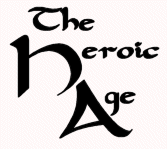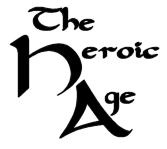The State(s) of Early English Studies: A Shared Essay Cluster with postmedieval: a journal of medieval cultural studies
Eileen A. Joy
Department of English, Southern Illinois University Edwardsville
,§1. The cluster of essays published jointly here and in Volume 1, Issue 3 of postmedieval: a journal of medieval cultural studies (Nov. 2010), addresses the intersections between early English studies, theory, and the present. This cluster originated as a conference panel discussion in May of 2008 at the International Congress on Medieval Studies in Kalamazoo, Michigan, co-sponsored by the BABEL Working Group1 and The Heroic Age (and featuring remarks by Kathleen Davis, Mary Dockray-Miller, Stacy Klein, Kathryn Powell, Jacqueline Stodnick, Mary Swan, and Renée Trilling).
§2. Originally envisioned as a round-table discussion that would consider and explore how already-established critical theories (such as those associated with psychoanalysis, deconstruction, Marxism, feminism, gender and sexuality studies, New Historicism, postcolonial studies, and the like) either had, or had not, been taken up, appropriated, applied, and re-formulated within Old English studies, the lively, and even at times contentious, discussion itself at Kalamazoo made it clear to all of us that, in some respects, this was either a moot or an exhausted or unproductive question—after all, Gillian Overing declared almost twenty years ago at the annual convention of the Modern Language Association, "we are changed by this new work," which "has, indeed, arrived" (Overing 1993, 135). And essay collections such as Britton Harwood and Gillian Overing's Class and Gender in Early English Literature (1994), Katherine O'Brien O'Keeffe's Reading Old English Texts (1997), Allen Frantzen and John Niles's Anglo-Saxonism and the Construction of Social Identity (1997), all now over ten years old, as well as anthologies such as Eileen Joy and Mary Ramsey's The Postmodern Beowulf (2007), have all devoted more than ample room to the demonstration of the value of productive convergences between postmodern theory, Old English literature, and Anglo-Saxon culture and history, and they have also cleared new theoretical grounds in early English studies. This is not even to begin to mention the singular and collective contributions of the scholars included in this essay cluster to the reimagining of early English studies in relation, not only to theory, but also to later periods within literary-historical studies and even to modern life, which are various and many.2
§3. We decided that a better tack for the cluster of essays to be developed after the session at the Kalamazoo Congress would be, not to mull the place and uses of theory only within early English studies, but rather to consider what the position of contemporary Old English and Anglo-Saxon studies might productively be in relation to the histories and ongoing development of theory (critical, cultural, historical, social, political, aesthetic, ethical, etc., and to all of the 'turns' involved therein) and to literary-historical studies more generally? What, further, might be important new directions in contemporary intellectual discourses (academic, public, and otherwise) for which the study of early English culture and history might be critically important and indispensable? What subjects remain neglected or under-developed in early English studies and what, further, are some of the more promising 'new' directions in early English studies today? In short, how might we sketch out some of the states and futures (with an emphasis on the plural) of an early English studies that is not (and never really was) a realm apart from either later periods within literary-historical studies or from contemporary life and thought? The cluster, featuring contributions by Kathleen Davis, Mary Dockray-Miller, Clare Lees and Gillian Overing, Carol Braun Pasternack, Jacqueline Stodnick and Renée Trilling, Elaine Treharne, and Lisa Weston, covers subjects as richly various as the marriage debate in Anglo-Saxon England and in contemporary America, and its textual production and transmission across various media, past and present (Pasternack); the place of pleasure in Old English studies within the context of the California budget crisis and its possibly tragic impact upon medieval studies within higher education there (Weston); the contribution early English studies might make to studies of embodiment and the so-called 'new materialisms' (Stodnick and Trilling); the debt of modern poetry to Old English verse (Treharne); the relation of Old English/Middle English to medieval/modern periodizations in the light of jural history (Davis); new media aliteracy and language study (Dockray-Miller); and our ethical (and gendered) relations to questions of temporality and disciplinarity (Lees and Overing).
§4. In order to craft a bridge for this essay cluster between a journal that aims to bring the medieval and modern into productive critical relations for a broad audience within the humanities and beyond (postmedieval) and a journal that primarily specializes in studies of early medieval northwestern Europe (The Heroic Age), we are publishing this cluster across the two journals, with the essays by Davis, Pasternack, Stodnick and Trilling, and Weston appearing in postmedieval 1.3 (Nov. 2010), and the essays by Dockray-Miller, Lees and Overing, and Treharne appearing in this issue of The Heroic Age. The Heroic Age is, of course, an online, open-access journal and the essays here are fully available online; the essays in postmedieval by Davis, Pasternack, Stodnick and Trilling, and Weston will be available free online for a brief period in November (http://www.palgrave-journals.com/pmed/journal/v1/n3/index.html), in order that the entire cluster may be read together online at that time.
§5. In the spirit of the collaborative labors (which are also deeply feminist) evidenced by so much of the work of the scholars published in this cluster, it is hoped that more such collaborative ventures between journals and other publishing media can be crafted in the future as well, in order to initiate and help sustain a more collective humanities, across time 'periods,' languages, research specialties, disciplinary affiliations, and modes (and even genders and trans-genders) of transmission. Such might also be a move toward new collectives or networks or desiring-assemblages, also called friendships, tilted at a futural humanities in which the study of the premodern past would play an integral and provocative role.
Notes
1. For the history, mission, and ongoing projects of the BABEL Working Group, see http://www.babelworkinggroup.org. [Back]
2. See, for example, Davis (2008), Davis and Altschul (2009), Dockray-Miller (2000), Farmer and Pasternack (2003), Fenster and Lees (2002), Lees (1994, 1999), Lees and Overing (2001), Overing (1990), Pasternack (1995), Pasternack and Weston (2004), Pulsiano and Treharne (2001), Stodnick (2010), Swan and Treharne (2000), and Trilling (2009). [Back]
Works Cited
Davis, Kathleen. 2008. Periodization and sovereignty: how ideas of feudalism and secularization govern the politics of time. Philadelphia: University of Pennsylvania Press. [Back]
Davis, Kathleen and Nadia Altschul, eds. 2009. Medievalisms in the postcolonial world: the idea of the 'Middle Ages' outside Europe. Baltimore: Johns Hopkins University Press. [Back]
Dockray-Miller, Mary. 2000. Motherhood and mothering in Anglo-Saxon England. New York: Palgrave Macmillan. [Back]
Farmer, Sharon and Carol Braun Pasternack, eds. 2003. Gender and difference in the Middle Ages. Minneapolis: University of Minnesota Press. [Back]
Fenster, Thelma and Clare A. Lees, eds. 2002. Gender in debate from the early Middle Ages to the Renaissance. New York: Palgrave Macmillan. [Back]
Frantzen, Allen J. and John D. Niles, eds. 1997. Anglo-Saxonism and the construction of social identity. Gainesville: University Press of Florida. [Back]
Harwood, Britton and Gillian Overing, eds. 1994. Class and gender in early English literature. Bloomington: Indiana University Press. [Back]
Joy, Eileen A. and Mary K. Ramsey, eds. 2007. The postmodern Beowulf: a critical casebook. Morgantown: University of West Virginia Press. [Back]
Lees, Clare A. 1994. Medieval masculinities: regarding men in the Middle Ages. Minneapolis: University of Minnesota Press. [Back]
———. 1999. Tradition and belief: religious writing in late Anglo-Saxon England. Minneapolis: University of Minnesota Press. [Back]
Lees, Clare A. and Gillian Overing. 2001. Double agents: women and clerical culture in Anglo-Saxon England. Philadelphia: University of Pennsylvania Press. [Back]
O'Brien O'Keeffe, Katherine, ed. 1997. Reading Old English texts. Cambridge, UK: Cambridge University Press. [Back]
Overing, Gillian. 1990. Language, sign, and gender in Beowulf. Carbondale: Southern Illinois University Press. [Back]
———. 1993. Recent writing on Old English: a response. Æstel 1: 135—149. [Back]
Pasternack, Carol Braun. 1995. The textuality of Old English poetry. Cambridge, UK: Cambridge University Press. [Back]
Pasternack, Carol Braun and Lisa M.C. Weston, eds. 2004. Sex and sexuality in Anglo-Saxon England: essays in memory of Daniel Gilmore Calder. Tempe, AZ: Arizona Center for Medieval and Renaissance Studies (ACMRS). [Back]
Pulsiano, Phillip and Elaine Treharne, eds. 2001. A companion to Anglo-Saxon literature. Oxford: Oxford University Press. [Back]
Stodnick, Jacqueline A. 2010. Emergent Englishness. In The Oxford handbook on medieval literature in English, ed. Elaine Treharne, Greg Walker, and William Green. Oxford, UK: Oxford University Press. [Back]
Swan, Mary and Elaine Treharne, eds. 2000. Rewriting Old English in the twelfth century. Cambridge, UK: Cambridge University Press. [Back]
Trilling, Renée. 2009. The aesthetics of nostalgia: historical representation in Old English verse. Toronto: University of Toronto Press. [Back]

